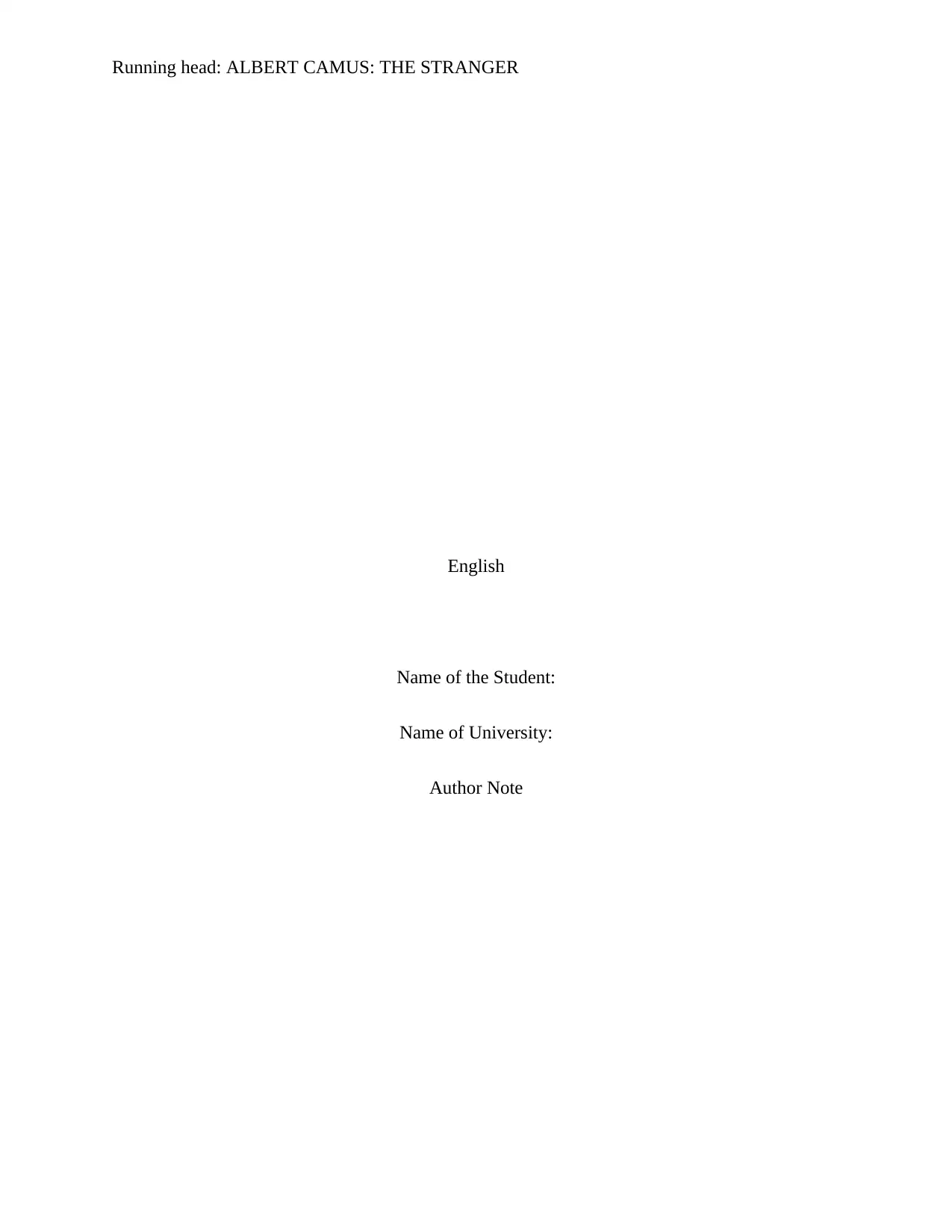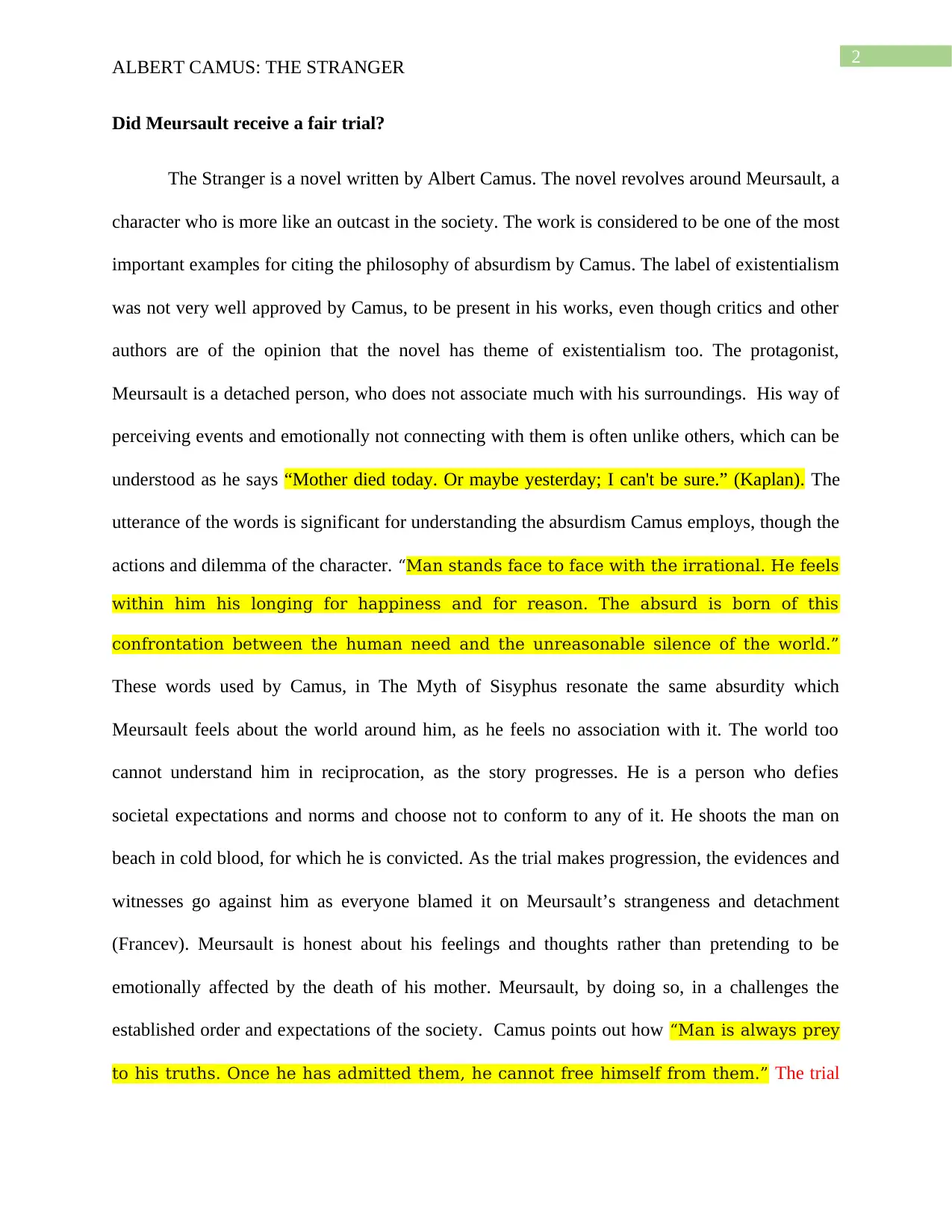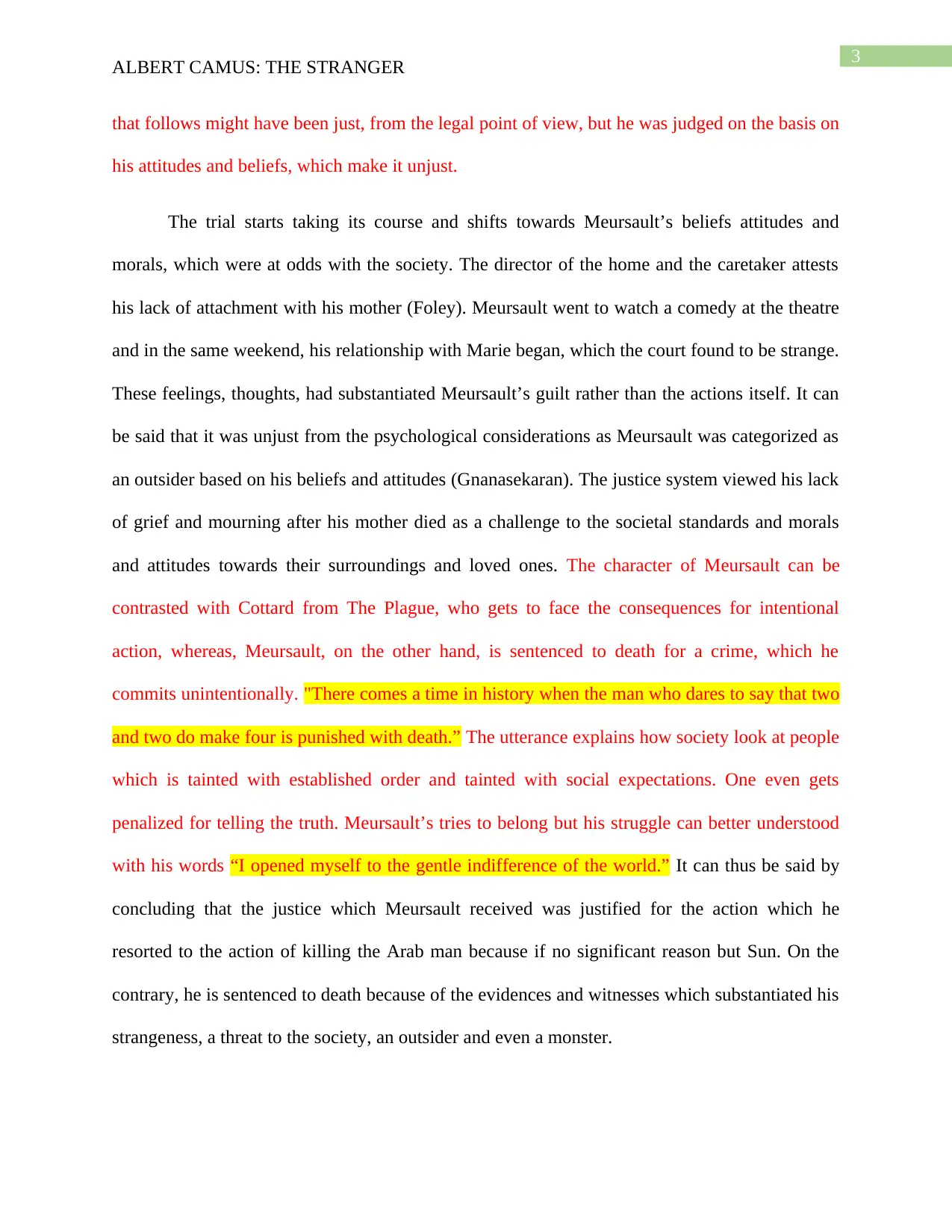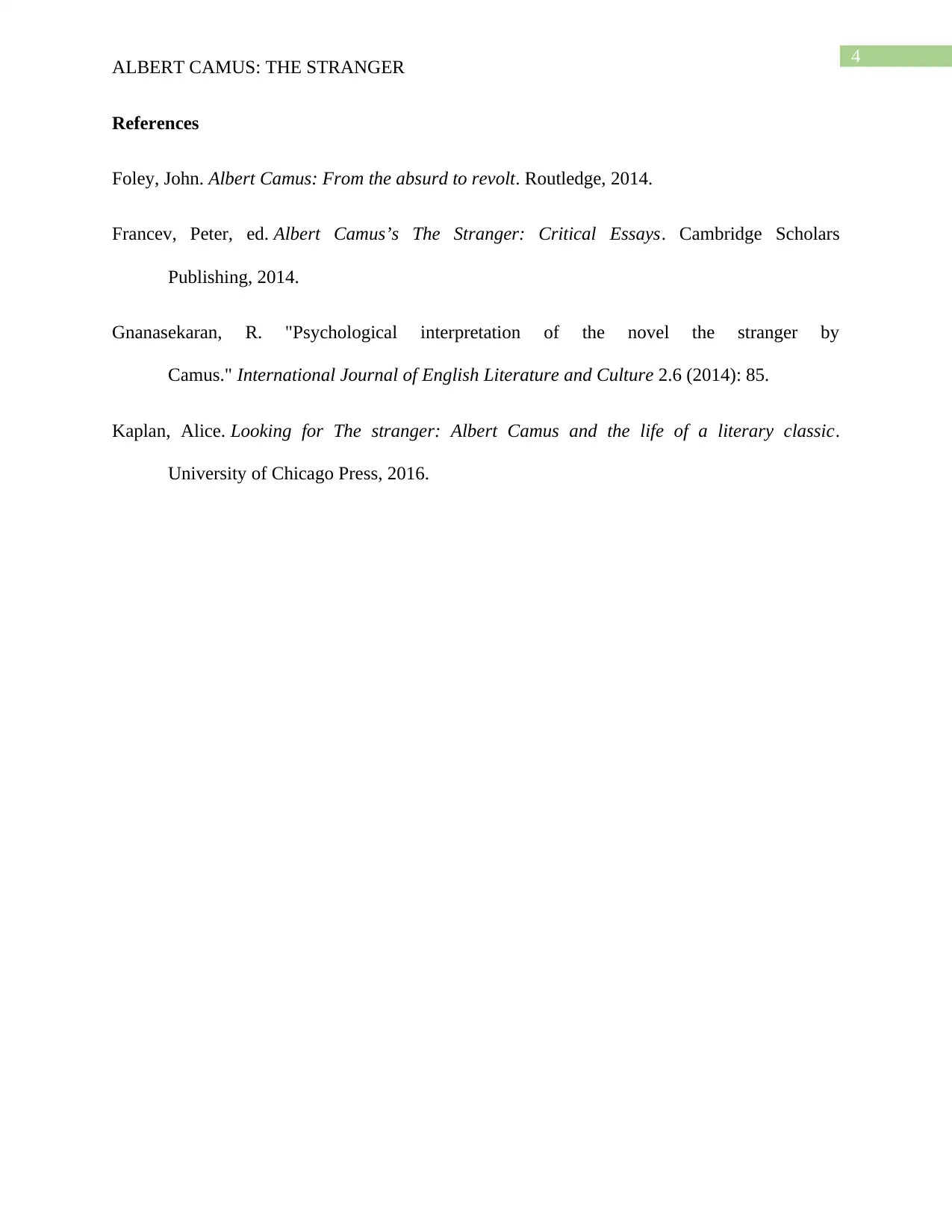Justice and Absurdity: Exploring Meursault's Trial in The Stranger
VerifiedAdded on 2022/08/18
|4
|901
|18
Essay
AI Summary
This essay delves into the trial of Meursault in Albert Camus' novel, The Stranger, examining whether he received a fair trial. The essay explores the themes of absurdism, societal expectations, and justice through Meursault's actions and the court's judgment. It discusses how Meursault's detachment and indifference, particularly regarding his mother's death, were used against him, highlighting the conflict between his individual beliefs and societal norms. The analysis contrasts Meursault's case with other characters and philosophical concepts, ultimately arguing that while the legal outcome was based on his actions, the trial's focus on his character and beliefs made it unjust. The essay references key quotes and critical interpretations to support its claims, providing a comprehensive understanding of the novel's central themes and Meursault's fate.
1 out of 4











![[object Object]](/_next/static/media/star-bottom.7253800d.svg)